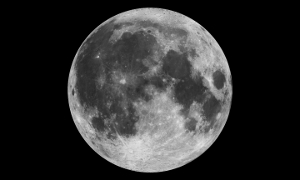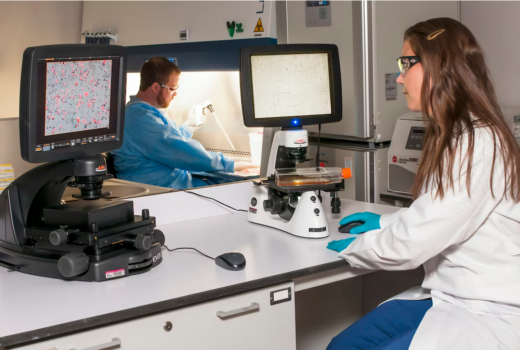Leven dankzij de maan en ondanks

A new study from US scientists theorizes that the number ofplanets supporting advanced life forms could be 10 times largerthan previously estimated. Past research suggested that such lifeforms needed stable climate conditions that could only persist ifthe planet in question was accompanied by a moon stabilizing itsaxis tilt. With the help of numerical simulations, Jack Lissauer(NASA astrophysicist) and Jason Barnes (physicist at University ofIdaho, Moscow, and John Chambers) show that this is not necessarilythe case.
Wat gebeurt er met de as van deplaneet?
Lissauer stated that “the variations in Earth’s axial tilt wouldindeed be substantially larger if there was no large moon, butreally big excursions from the current value would only occur ontime scales of billions of years.” This would, consequently, offera big enough time span for advanced life forms to evolve.
Other planets like Mars for instance are only surrounded by twosmaller moons with lesser gravitational impact. This leads to itsaxis tilt varying significantly between 10° and 60° while theEarth’s axis tilt stays almost constant at 23,5°. So far, therehave been no insights gained on what happens to life forms if theplanet they inhabit drastically changes its axis tilt.
The theory that planets supporting advanced life forms need tobe accompanied by at least one sizeable moon was put forward in1993. Back then, Jacques Laskar and Philippe Robutel, two Frenchmathematicians, showed how the moon stabilizes the Earth’s climate.They suggested that without the moon, other planets like Venus oreven the gas giant Jupiter could disturb the Earth’s axis tiltthrough gravitation with severe consequences for our climate.
Meest Gelezen
Vrouwen houden universiteit draaiende, maar krijgen daarvoor geen waardering
Hbo-docent wil wel rolmodel zijn, maar niet eigen moreel kompas opdringen
Wederom intimidatie van journalisten door universiteit, nu in Delft
‘Waarom het nu niet lukt om medezeggenschap in hbo te versterken’
‘Sluijsmans et al. slaan de plank volledig mis’


